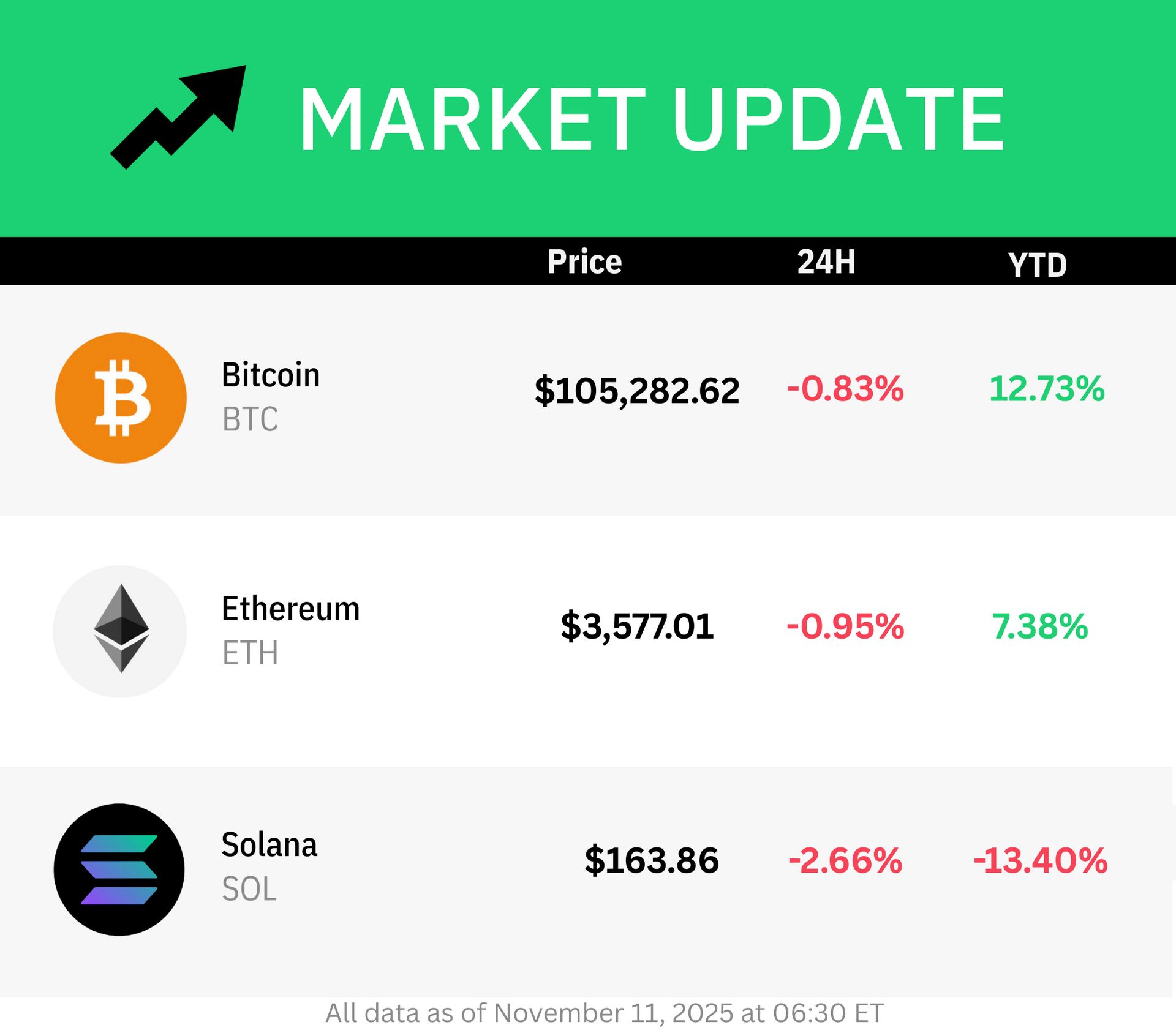- Unchained Daily
- Posts
- Uniswap’s “UNIfication” Proposal Sends UNI Soaring 50%
Uniswap’s “UNIfication” Proposal Sends UNI Soaring 50%
Plus: 💼 Coinbase debuts its new token sales platform, 🏛️ Senate committee unveils bipartisan crypto market structure bill.

Hi! In today’s edition:
💥 UNI rallies 50% on Uniswap’s fee switch proposal
💼 Coinbase launches digital token sales platform
🏛️ Senate shares bipartisan crypto market structure bill draft
Today’s newsletter is brought to you by Mantle
Mantle is building the Blockchain for Banking — where TradFi meets Web3. Explore real-world financial tools, powered fully on-chain.

By Tikta
Uniswap Fee Switch Proposal Sparks 50% UNI Rally
Uniswap’s native token UNI surged 50% to an intraday high of $9.94 hours after Uniswap Foundation and Uniswap Labs jointly proposed a governance upgrade to activate protocol fees.
The proposal, known as "UNIfication," aims to activate the long-debated fee switch. It would divert a portion of Uniswap's protocol fees — currently going to liquidity providers — into a mechanism that burns UNI tokens.
The fee switch would redirect between one-quarter and one-sixth of swap fees from Uniswap v2 and v3 pools to a "token jar" smart contract.
UNI holders would then be able to burn their tokens and withdraw an equivalent amount of crypto from the token jar, effectively reducing the UNI supply and effectively boosting the value of the remaining tokens.
The proposal also includes the direct burning of nearly 100 million UNI tokens worth around $800 million, representing the fees that could have been burned since Uniswap's launch.
A “fee-switch” proposal has been long debated within the Uniswap community, with previous efforts to implement it often failing at the eleventh hour of governance voting.
“UNI launched in 2020, but for the past 5 years Labs has been unable to meaningfully participate in Uniswap governance, and has been greatly restricted in the ways it can build value for the Uniswap community,” said Uniswap Labs founder and CEO Hayden Adams.
“That ends today!”
Coinbase Launches Digital Token Sales Platform
Crypto exchange Coinbase has launched a new digital token sales platform that allows individual investors to purchase digital tokens before they are listed on the exchange.
“Token launches needed a change. So we built it,” said Coinbase.
The platform aims to reboot the initial coin offering (ICO) model with built-in investor protections and a fair allocation algorithm. Investors will have a one-week window to submit purchase requests, after which tokens will be distributed equitably to avoid the first-come, first-served approach.
These token purchases must be made using USDC, and project teams will be barred from selling their tokens for six months after the sale.
Coinbase plans to host about one token sale per month, with the blockchain startup Monad as the first issuer on this platform starting Nov. 17.
The U.S. Senate Agriculture Committee has unveiled a bipartisan discussion draft of the crypto market structure bill known as the CLARITY Act with the goal of clearly defining roles for regulators overseeing digital assets.
The bill would grant the Commodity Futures Trading Commission (CFTC) new authority to regulate spot digital commodity trading that includes bitcoin and ether.
Meanwhile, the Securities and Exchange Commission (SEC) would oversee assets classified as securities, thereby resolving long-standing jurisdictional confusion between the two agencies.
The bill itself includes exemptions for qualifying crypto assets from the Securities Act registration, in
in addition to provisions for new consumer protections and resources for the CFTC to oversee the market.
However, it still needs to be combined with the Senate Banking Committee’s version before it can advance further in the legislative process.

💷 The Bank of England proposed temporary limits on stablecoin holdings—capping individuals at £20,000 and businesses at £10 million—while requiring issuers to back reserves partly with government debt, aiming to prevent mass withdrawals from banks as the UK cautiously integrates digital currencies.
🪄 Monad revealed its MON token structure ahead of its November launch on Coinbase’s new sale platform, pledging to lock over 50% of its 100 billion tokens while allocating most of the rest to team, investors, and ecosystem growth to support its high-speed blockchain network.
🇦🇷 An Argentine judge froze over half a million dollars linked to Kelsier Ventures CEO Hayden Davis and two intermediaries after investigators found the funds were transferred minutes after President Milei posed for a selfie with Davis, raising suspicions of possible indirect bribes connected to the Libra meme coin collapse.
🇺🇸 The U.S. Treasury and IRS approved new rules that allow Wall Street crypto products to legally distribute staking rewards, clearing the way for major firms to offer yields on Ethereum and Solana while giving traditional investors more clarity and access to blockchain-based returns.
📉 Veteran short-seller James Chanos closed his bet against Michael Saylor’s Strategy as the company’s Bitcoin premium shrank sharply, while Saylor doubled down by buying another $49.9 million in bitcoin using preferred-share proceeds to maintain its vast 641,692-coin hoard.
⚡ Jack Dorsey’s Block enabled 4 million Square merchants worldwide to accept bitcoin payments with zero fees until 2027, using the Lightning Network for instant settlements as part of its push to bring crypto payments into everyday business transactions.

🏦 DBS Bank and Kinexys, a blockchain venture from J.P. Morgan, are building a new system to enable 24/7 transfers of tokenized bank deposits between public and private blockchains, a move aimed at improving cross-network payments for institutions while ensuring regulatory compliance.

📉 Gemini, the crypto exchange founded by the Winklevoss twins, posted a worse-than-expected $6.67 per-share loss in its first earnings report as a public company, with shares dropping 12% and expenses surging amid expansion plans including a global prediction market platform.



DL News: Bitcoin to $130,000? Price seen to surge after Senate votes to end US shutdown
Public Sales are the New Airdrops by Taiki Maeda
Carol on EIP 7503
